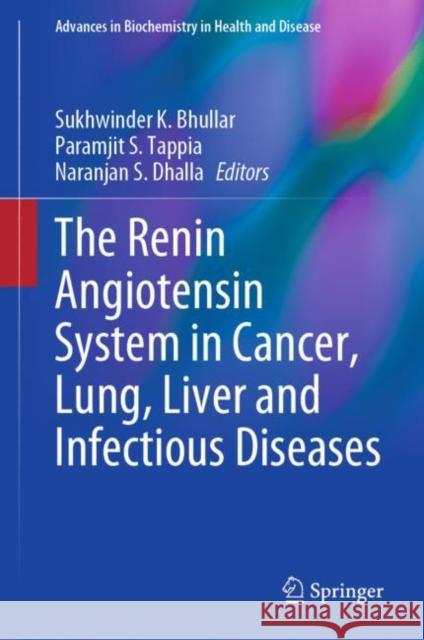The Renin Angiotensin System in Cancer, Lung, Liver and Infectious Diseases » książka
The Renin Angiotensin System in Cancer, Lung, Liver and Infectious Diseases
ISBN-13: 9783031236204 / Angielski / Twarda / 2023 / 734 str.
The Renin Angiotensin System in Cancer, Lung, Liver and Infectious Diseases
ISBN-13: 9783031236204 / Angielski / Twarda / 2023 / 734 str.
(netto: 575,06 VAT: 5%)
Najniższa cena z 30 dni: 578,30
ok. 22 dni roboczych.
Darmowa dostawa!
This book of the series on “Advances in Biochemistry in Health and Disease” includes state-of-the-art information on the status of renin-angiotensin system (RAS) in the form of 24 chapters. This book has been organized into three sections: (i) General Implications of RAS in human health and Infectious Diseases, (ii) Lung, Liver and Kidney Diseases, and (iii) Development of Cancer. Each chapter has discussed comprehensive knowledge regarding the molecular and cellular aspects of the role of RAS in the pathophysiology and pharmacotherapy of different disease processes. Biochemical mechanisms associated with angiotensin II type 1 and type II receptors, and angiotensin (1-7) MAS receptors for the occurrence of both harmful and beneficial effects of prolonged activation of RAS in different diseases have been outlined. It is noteworthy to point out that different chapter in this book were prepared by recognized global expertise in the area of inflammation, oxidative stress and signal transduction pathways to highlight the role of RAS in different diseases. It is our sincere hope that this book will be of great interest to both biomedical investigators and health professionals as well as graduate students and postdoctoral fellows all over the world.
This book of the series on “Advances in Biochemistry in Health and Disease” includes state-of-the-art information on the status of renin-angiotensin system (RAS) in the form of 24 chapters. This book has been organized into three sections: (i) General Implications of RAS in human health and Infectious Diseases, (ii) Lung, Liver and Kidney Diseases, and (iii) Development of Cancer. Each chapter has discussed comprehensive knowledge regarding the molecular and cellular aspects of the role of RAS in the pathophysiology and pharmacotherapy of different disease processes. Biochemical mechanisms associated with angiotensin II type 1 and type II receptors, and angiotensin (1-7) MAS receptors for the occurrence of both harmful and beneficial effects of prolonged activation of RAS in different diseases have been outlined. It is noteworthy to point out that different chapter in this book were prepared by recognized global expertise in the area of inflammation, oxidative stress and signal transduction pathways to highlight the role of RAS in different diseases. It is our sincere hope that this book will be of great interest to both biomedical investigators and health professionals as well as graduate students and postdoctoral fellows all over the world.











